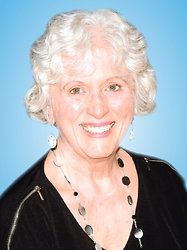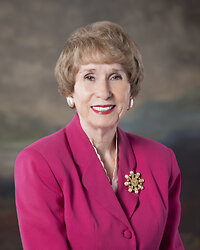The lesson for us from this study is that it is
not so much the event that has the power
but what we tell ourselves, how we interpret
the event and what we believe.
A friend gave me a mnemonic for defining what we fear: F.E.A.R. With this article, we will examine the first letter - 'F'- that stands for our fear of failure.

Several years ago, there was a study made by Suzanne Kobasa, Ph.D., who wanted to find out how well the employees were doing after they lost their jobs during the AT&T breakup.
When dealing with failure we would be wise to use what the study revealed about people who made a healthy adjustment to their job loss.
1. Sense of Control:
The study found that these people believed that life events could be influenced. They did not see themselves as powerless or helpless to make changes. Rather than seeing themselves as helpless victims, they believed that they could have a meaningful life. Their spirit reminds us of the saying, 'When one door shuts, God opens another.' For some of us the problem is when one door shuts, we stand staring at the close door, bemoaning that life is not fair. We stay stuck.
2. Sense of commitment:
They believed that they were not passive spectators watching others determine the outcome of their lives. They were actively involved in life. Their jobs did not say everything about them. They believed they had a purpose in life greater than their jobs. This is so essential to our well-being. We have a job and we have a life's vocation. When we know what our purpose in life is, then from this we choose our jobs. If we lose our jobs, we do not lose our identity and purpose.
3. Sense of Challenge:
Instead of seeing their job loss as a defeat and an impossible roadblock, they viewed their situation as an opportunity to try something new that they did not have the time to do before. Some saw it as an opportunity to go to college. They had an attitude of making lemonade out of lemons.
Often we do not make the life changes we know we need to make unless we are forced. Perhaps life's opportunities don't come on a silver platter but appear in the trenches. There is a Persian proverb that says 'When it gets dark enough, we see stars.'
The lesson for us from this study is that it is not so much the event that has the power but what we tell ourselves, how we interpret the event and what we believe. After a traumatic event, it is also important for us to surround ourselves with a strong support system because we know that people with a strong support system do much better than those without it.
Dr. William E. Austin is a licensed psychotherapist and holds a Doctor of Divinity degree. He is a therapist with Tidewater Pastoral Counseling Services . He is well known for his warmth and sense of humor. His book, Creating Our Safe Place - Articles on Healthy Relationships, can be purchased through www.amazon.com.
Tidewater Pastoral Counseling: 623-2700
CURRENT COLUMNS
Publisher’s Point 
Time To Moveby Jean Loxley-BarnardChildren First 
Dandelion Timeby Becky AdamsOn The Front Porch With You 
Memories of Homeby Rob LauerRelationships 
When Your Security Blanket is in the Dryerby Dr. Bill Austin

